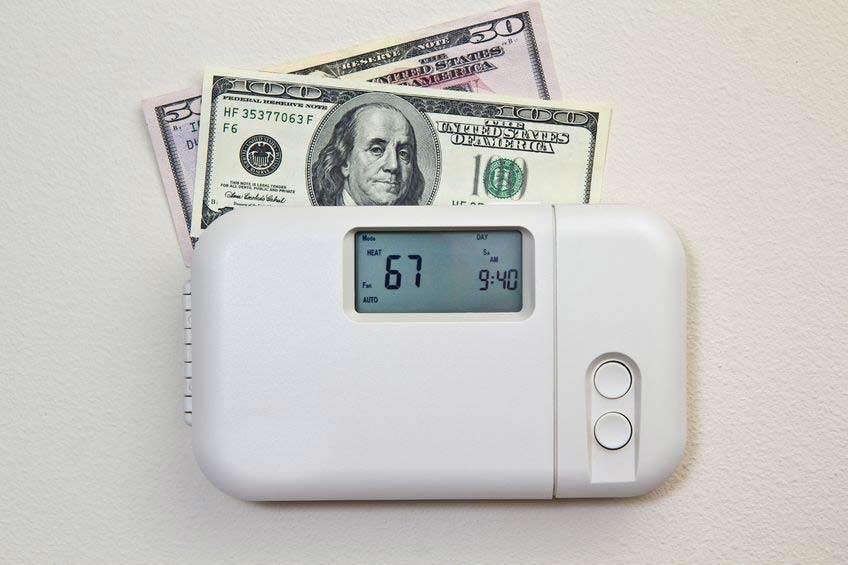The simple answer is yes, in most cases your energy bill will rise because you will use more electricity with central air conditioning. However, your water bill usually goes down when you convert. Typically in most cases though what you spent in water with a swamp cooler you will likely spend more in electricity with central air. That is why we recommend hiring a professional HVAC company to install and convert your refrigerated air system. There are things a professional will do to evaluate the best type of system to install in your home that meets your needs and your budget. It is also important to consider the energy rating of the central air conditioner when sizing a unit. The higher the SEER rating the less impact you will see on your energy bills. We’ve compiled a list of things you should know that can have an impact on your energy costs when converting to refrigerated air.
1. Size and SEER of Air Conditioner
It is vital to your home to have a professional size your air conditioner system properly. They should account for the size of your home, as well as perform heat load calculations to size the unit accordingly. If you’re worried about the increased energy costs to run the air conditioner, your HVAC professional can provide you options to increase your SEER rating. SEER stands for (Seasonal Energy Efficiency Rating), SEER ratings reflect overall system efficiency on a seasonal basis and EER is the energy efficiency rating at one specific operating condition. The minimum SEER rating for air conditioning systems are 15 and go as high up as 30 for split systems. PNM offers rebates for choosing high energy efficient air conditioning and heating systems.
2. Upgrading Your Heating & Cooling System Together
To maximize energy efficiency it is likely you will need to upgrade your furnace when converting to refrigerated air conditioning. In order for your air conditioner to maintain its optimal efficiency, the heating system and air conditioner need to have the same energy rating. If you have a furnace that is older than 8 years old you will need to replace your furnace when you convert your air conditioner. By skipping this step and not updating your furnace, your new air conditioner will not be able to run at its maximum efficiency which may add to your energy costs.
3. Duct Work
Duct work modifications may be required to adequately cool your home with central air conditioning. An HVAC Professional will need to evaluate your existing duct work to see if it can provide adequate air flow to cool your home, with a new air conditioner. Without proper air flow, your air conditioner will run for longer periods to cool your home, which may lead to increased energy costs.
4. Insulation & Weatherstripping
If you have a drafty home you will likely need to add insulation and weatherstripping to reduce energy waste in your home. Not only does added insulation keep your home cooler but it can reduce energy costs year-round. By sealing your home you can experience a more comfortable environment throughout the year and save money on your energy bill.
5. Adjusting Your Thermostat
One of the biggest reasons homeowners convert to refrigerated air is to get controlled cooling, especially when the summer temperatures soar. Unlike swamp coolers, central air conditioners cool to a temperature you choose. While this is a huge plus for comfort it can be costly if want to keep your home very cool like 62 degrees. In order for your home to maintain this type of temperature in the summer, your air conditioner will have to run non-stop and this can be quite costly. Most people are comfortable at about 73 – 75 degrees, which is not that bad as it relates to energy costs. Also, consider investing in a good programmable thermostat that has various degree settings. There are also thermostats that link to your smartphone so you can control even when you’re not at home.
The bottom line is that your energy costs will likely have somewhat of an influx that may be slightly or largely depending on the things we addressed above. If you’re worried about your energy costs increasing if you convert to AC, consider getting an energy checkup from PNM. They also have other resources on electricity usage and air conditioners.

Want more information?
Download our refrigerated air guide:
Are you considering converting to refrigerated air conditioning? Get valuable information in our refrigerated air guide before you buy. Download for free today.

